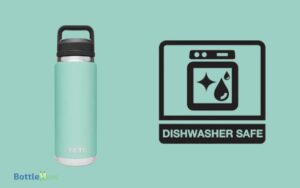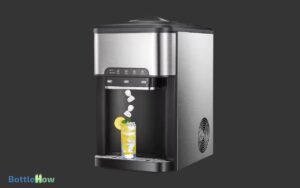What Happens if You Swallow a Water Bottle Cap
Swallowing a water bottle cap can cause severe discomfort, a choking sensation, and potential esophageal obstruction. Promptly, you'll need medical attention to avoid complications like airway compromise or esophageal perforation.
Common symptoms include difficulty swallowing, chest pain, and increased salivation. Risk factors include age and preexisting esophageal conditions.
Diagnostic approaches may involve X-rays or endoscopy to locate and possibly remove the cap. Critical signs such as respiratory distress or abdominal pain require urgent care.
Delays can escalate risks, but there are steps you can take immediately to mitigate dangers and better understand what to do next.
Key Takeaways
- Swallowing a water bottle cap can cause throat obstruction, irritation, and discomfort.
- Symptoms to watch for include difficulty swallowing, chest pain, vomiting, and respiratory distress.
- Immediate medical attention is crucial to prevent complications like esophageal perforation or airway blockage.
- Diagnostic imaging like X-rays or CT scans helps locate the ingested cap.
Initial Reaction

Upon swallowing a water bottle cap, you may immediately experience discomfort and a sensation of obstruction in your throat. This is due to the cap's physical presence, which can irritate the mucosal lining and potentially cause a gag reflex.
You might also notice difficulty swallowing, increased salivation, or even respiratory distress if the cap partially obstructs your airway. As your body's initial reaction, these symptoms serve as protective mechanisms, alerting you to a foreign object that could cause harm.
If the cap progresses into your esophagus, you may feel pain or pressure in the chest area. It's vital to seek medical attention promptly, as complications such as esophageal perforation or airway compromise can arise without timely intervention.
Risk Factors
When considering the risk factors, you should be particularly aware of age and existing health conditions.
Young children and elderly individuals face increased risks due to smaller airways and less effective swallowing mechanisms.
Additionally, underlying health issues like esophageal abnormalities or digestive disorders can exacerbate complications.
Age and Swallowing Risks
Swallowing risks, particularly involving small objects like water bottle caps, greatly vary with age due to differences in anatomical and physiological development.
In infants and young children, the risk is heightened because their airways are smaller and their swallowing mechanisms aren't fully matured. They're also more prone to exploring objects orally.
In contrast, adults typically have more developed swallowing reflexes and larger airways, reducing the risk somewhat. However, elderly individuals may face increased risks due to potential declines in muscle strength, coordination, and reflexes associated with swallowing.
Understanding these age-related variances is essential for implementing effective preventive measures and timely interventions. Always consider the specific age group when evaluating the risk of swallowing foreign objects.
Existing Health Conditions
Individuals with pre-existing health conditions, such as gastroesophageal reflux disease (GERD) or esophageal strictures, frequently face elevated risks when ingesting foreign objects like water bottle caps.
If you have GERD, your esophagus may already be compromised, reducing its ability to push the cap into the stomach. Similarly, esophageal strictures, which involve the narrowing of the esophagus, can further complicate the passage of foreign objects.
These conditions increase the likelihood of the cap becoming lodged, leading to potential obstructions, perforations, or infections.
It's important to seek immediate medical attention if you swallow a water bottle cap, as your existing health conditions can exacerbate the complications, making timely intervention even more essential for preventing severe outcomes.
Symptoms to Monitor

If you or someone else swallows a water bottle cap, monitor for symptoms like abdominal pain, difficulty swallowing, or vomiting, as these may indicate potential complications.
Evaluate for additional signs such as chest pain, coughing, or changes in bowel movements, which could suggest the cap is obstructing the gastrointestinal tract.
Pay attention to any signs of respiratory distress or wheezing, as these might indicate aspiration into the airway.
Track any fever or chills, which could signal an infection.
Be vigilant for symptoms of internal bleeding, like blood in vomit or stool.
Consistent observation is essential for timely identification of adverse developments.
Swiftly recognizing these symptoms can greatly influence the outcome and reduce the risk of severe complications.
When to Seek Help
If you experience severe abdominal pain, persistent vomiting, or difficulty breathing, you should seek immediate medical attention.
These symptoms could indicate a serious complication, such as an obstruction or perforation.
Don't wait for symptoms to worsen before consulting a healthcare professional.
Warning Signs to Watch
Recognize immediate medical attention is crucial if you experience difficulty breathing, intense abdominal pain, or vomiting after swallowing a water bottle cap. These symptoms may indicate a blockage or damage to your gastrointestinal tract, which requires prompt intervention.
Watch for additional warning signs that necessitate seeking help:
- Persistent Coughing: Continuous coughing can suggest the cap has lodged in your airway.
- Swelling or Tenderness: Abdominal swelling or tenderness could signal internal injury or obstruction.
Don't ignore these symptoms. Timely medical evaluation can prevent complications and guarantee appropriate treatment.
Stay vigilant and prioritize your health if you suspect you've ingested a foreign object.
Immediate Medical Attention Needed
Seek immediate medical attention when experiencing symptoms like difficulty breathing, intense abdominal pain, or vomiting after swallowing a water bottle cap, as these signs indicate potential blockages or internal injuries requiring prompt intervention. Prompt evaluation by a healthcare professional guarantees proper diagnostic imaging and treatment.
| Symptom | Possible Indication |
|---|---|
| Difficulty Breathing | Airway obstruction |
| Intense Abdominal Pain | Gastrointestinal perforation |
| Vomiting | Esophageal or gastric blockage |
Ignoring these symptoms can lead to severe complications, such as infection or rupture. Visit an emergency room or urgent care facility if you observe any of these warning signs. Your quick response can greatly impact the outcome, preventing further harm and guaranteeing timely medical intervention. Don't delay seeking help.
Diagnostic Procedures

Upon suspecting ingestion of a foreign object like a water bottle cap, healthcare providers typically initiate diagnostic procedures to assess the object's location, size, and potential complications.
They'll likely start with a physical examination, focusing on the neck, chest, and abdomen.
Next, imaging studies are essential for visualizing the foreign object. Common diagnostic tools include:
- X-rays: Ideal for detecting metallic or radiopaque objects.
- CT scans: Provide detailed cross-sectional images, useful for non-metallic items.
Each of these diagnostic procedures helps determine the best course of action, ensuring timely and effective management of the situation.
Possible Complications
After identifying the location and characteristics of the ingested water bottle cap, it's important to contemplate the possible complications that may arise from its presence in the gastrointestinal tract.
The cap can cause obstruction, leading to severe pain, vomiting, and difficulty swallowing.
Perforation is another serious risk; the cap could puncture the intestinal wall, resulting in infection or peritonitis.
Additionally, the cap might cause localized irritation or inflammation, known as gastrointestinal ulceration.
In some cases, a foreign body can lead to bleeding or ischemia, where blood supply to the affected area is compromised.
These complications necessitate prompt medical intervention to prevent further deterioration of the patient's condition.
Understanding these risks is critical for timely diagnosis and appropriate management.
Treatment Options

Treatment options for an ingested water bottle cap depend on the cap's size, location within the gastrointestinal tract, and the presence of any symptoms or complications.
If the cap is small and asymptomatic, it might pass naturally through your digestive system. However, if you experience pain, vomiting, or difficulty swallowing, medical intervention is necessary.
Potential treatments include:
- Endoscopy: A flexible tube with a camera retrieves the cap from the esophagus or stomach.
- Surgery: In severe cases, a surgical procedure may be required to remove the cap if it's causing a blockage or perforation.
Each option is tailored to minimize risk and guarantee safety.
Home Care Tips
If you've swallowed a water bottle cap, start by remaining calm and evaluating your symptoms.
Monitor for signs of distress like difficulty breathing or severe pain, and seek medical attention immediately if these occur.
If symptoms are mild, consult your healthcare provider for further instructions on safe home care.
Immediate Action Steps
First, remain calm and assess whether the person is experiencing any immediate symptoms such as choking, difficulty breathing, or severe pain. If choking is evident, perform the Heimlich maneuver immediately. In the absence of choking, monitor the individual for signs of distress.
Hydrate: Encourage the person to drink small sips of water to help facilitate the passage of the bottle cap through the esophagus.
Observe: Keep a close watch for any signs of gastrointestinal discomfort, such as abdominal pain or vomiting.
Positioning: Have the person sit upright to prevent any further complications and aid the natural movement of the cap through the digestive tract.
These steps are essential for initial home care and stabilization before further medical consultation if necessary.
When to Consult
Should any symptoms of distress persist or worsen, it's imperative to seek medical consultation promptly to rule out complications such as esophageal obstruction or perforation.
If you experience persistent pain, difficulty swallowing, vomiting, or signs of infection like fever, don't delay in contacting a healthcare provider. Even minor symptoms can escalate, so timely evaluation is essential.
Home care tips include staying hydrated and eating soft foods to ease passage of the object. Avoid inducing vomiting, as this can cause further complications.
Monitor for any changes in symptoms and maintain a calm demeanor. If you're unsure about the severity of your symptoms, it's always safer to err on the side of caution and consult a medical professional.
Prevention Strategies

To minimize the risk of swallowing a water bottle cap, always guarantee that caps are securely fastened or immediately disposed of in a safe manner. Ensuring proper handling can greatly mitigate accidental ingestion risks.
Implement these strategies to enhance safety:
- Educate: Make sure everyone, especially children, understands the importance of handling caps properly.
- Monitor: Keep an eye on individuals who may be prone to placing objects in their mouths, such as young children.
These preventative measures, grounded in clinical best practices, will help you maintain a safer environment and reduce the likelihood of accidental ingestion incidents.
When to Consult a Specialist
If you suspect someone has swallowed a water bottle cap, it’s crucial to consult a specialist immediately to assess the potential for airway obstruction or gastrointestinal complications. Attempting to induce vomiting or retrieve the cap without medical guidance can be dangerous and may worsen the situation. In some cases, an X-ray or endoscopic procedure may be necessary to locate and safely remove the object. Additionally, while concerns about ingestion are serious, it’s also important to be aware of other hazards, such as a water bottle explosion in freezer, which can occur if a sealed bottle is left to freeze and expand beyond its capacity.
Initial symptoms like difficulty swallowing, coughing, or abdominal pain necessitate urgent evaluation.
A healthcare professional may perform imaging studies such as X-rays or CT scans to locate the object and determine the course of action.
Depending on the cap's position and risk factors, interventions may range from endoscopic retrieval to surgical intervention.
Ignoring symptoms or delaying consultation can lead to severe consequences like perforation, infection, or even life-threatening obstructions.
Always err on the side of caution and seek specialized medical advice promptly to guarantee safety and appropriate treatment.
Conclusion
If you swallow a water bottle cap, don't panic, but be vigilant.
A young adult once ingested one and felt fine initially, but later developed severe abdominal pain. This case underscores the importance of promptly seeking medical attention if symptoms arise.
Timely intervention can prevent complications like intestinal blockage. Always monitor your symptoms and consult a specialist if necessary.
Prevention remains key; keep bottle caps out of reach, especially from children.





